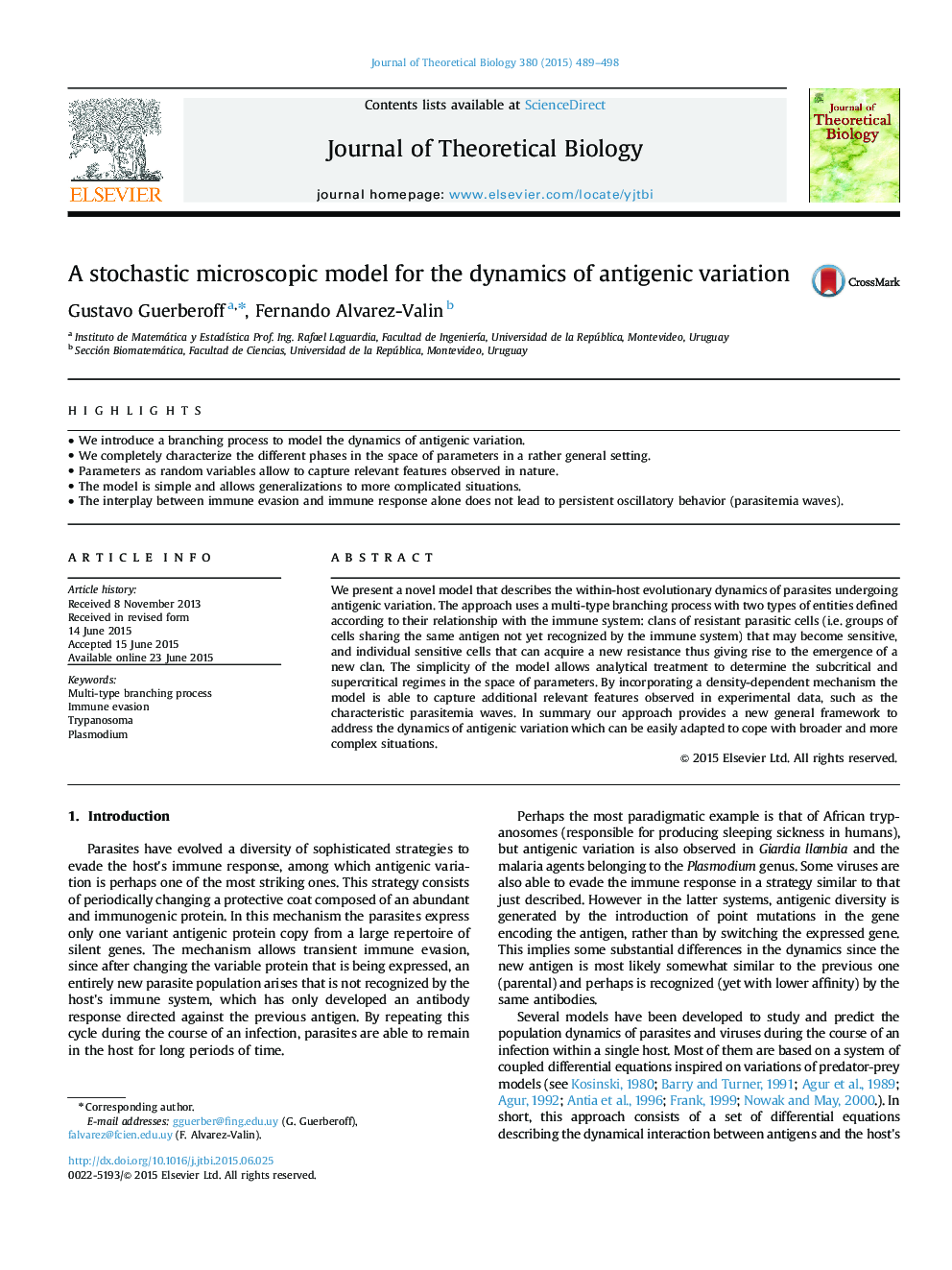| Article ID | Journal | Published Year | Pages | File Type |
|---|---|---|---|---|
| 6369685 | Journal of Theoretical Biology | 2015 | 10 Pages |
Abstract
We present a novel model that describes the within-host evolutionary dynamics of parasites undergoing antigenic variation. The approach uses a multi-type branching process with two types of entities defined according to their relationship with the immune system: clans of resistant parasitic cells (i.e. groups of cells sharing the same antigen not yet recognized by the immune system) that may become sensitive, and individual sensitive cells that can acquire a new resistance thus giving rise to the emergence of a new clan. The simplicity of the model allows analytical treatment to determine the subcritical and supercritical regimes in the space of parameters. By incorporating a density-dependent mechanism the model is able to capture additional relevant features observed in experimental data, such as the characteristic parasitemia waves. In summary our approach provides a new general framework to address the dynamics of antigenic variation which can be easily adapted to cope with broader and more complex situations.
Related Topics
Life Sciences
Agricultural and Biological Sciences
Agricultural and Biological Sciences (General)
Authors
Gustavo Guerberoff, Fernando Alvarez-Valin,
